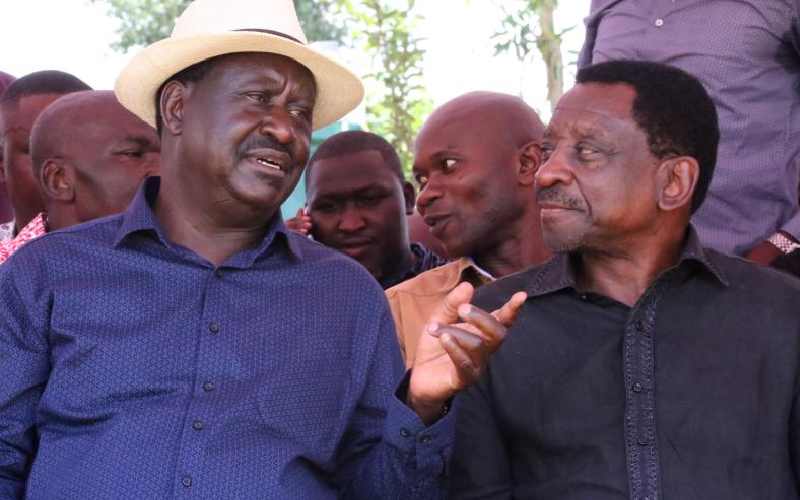×
The Standard e-Paper
Join Thousands Daily

The day before March 9, 2018 Handshake between President Uhuru Kenyatta and ODM leader Raila Odinga, the latter had a long meeting with Senator James Orengo and businessman Jimmy Wanjigi.
At no point did Raila mention to them his appointment with President Kenyatta the next day at Harambee House. Sources close to Raila and Orengo say the Siaya Senator was least amused. Getting to know about the Handshake through breaking news like everybody else was a slight for Raila’s confidant of many years.